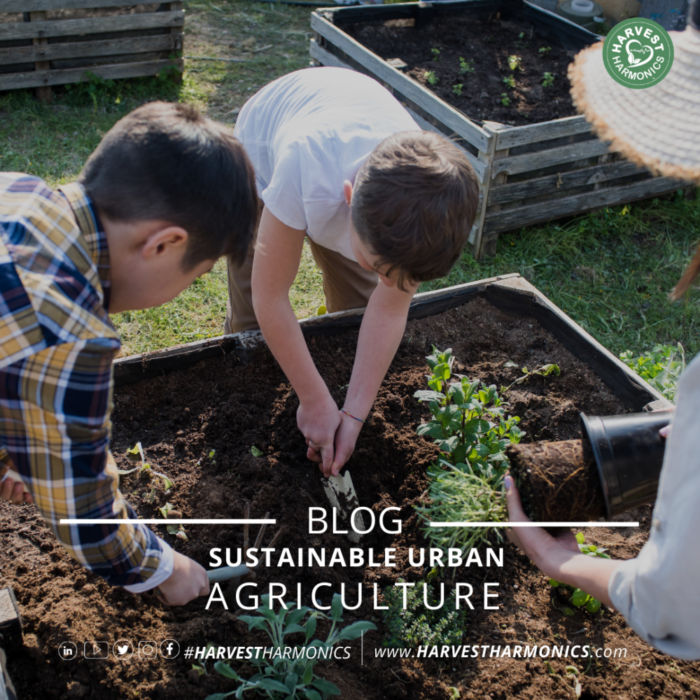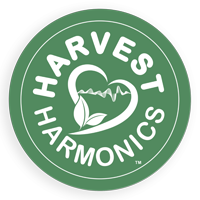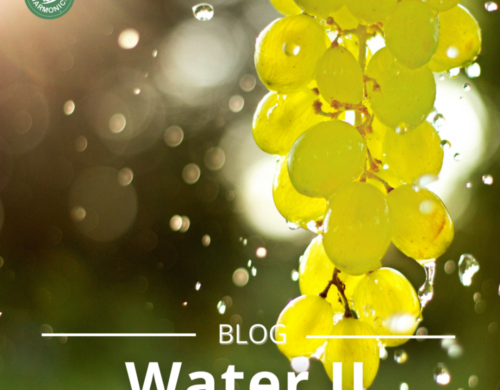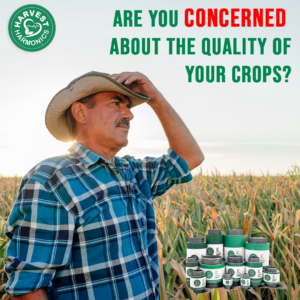Sustainable Urban Agriculture

Sustainable urban agriculture seeks to provide safe food through the sustainable intensification of space and biodiversity, soil and water resources to obtain higher yields in the short, medium and long term.
Around 15 percent of the world’s food is now grown in urban areas. According to the U.N. Food and Agriculture Organization (FAO), urban farms already supply food to about 700 million residents of cities, representing about a quarter of the world’s urban population. And by 2050, almost 80 percent of the world’s population is projected to reside in urban areas (Nick, 2022).
It involves the use of appropriate management practices and technologies, applying production methods and systems that optimize yields, maintaining and developing the locally available resource base.
For this, it develops technologies appropriate to the agroclimatic, social, cultural and economic conditions of intra and peri-urban farmers, promoting good practices that include the fair and equitable distribution of the costs and benefits associated with production. In this way, it contributes to reducing inequalities in access to resources and inputs that tend to limit the development of many farmers, especially the poorest.
Agriculture in the cities is practiced by intra-urban farmers, generally people with limited resources who produce for self-consumption and the commercialization of small surpluses obtained by cultivating and raising animals in small plots or spaces (in their homes or in community or group gardens) that do not exceed a few square meters, and who are located within cities. It is also practiced by peri-urban farmers, often family members and with a certain agricultural tradition, who produce for the market in larger plots located on the urban periphery that are usually measured in hectares.
Nowadays there are agreements for sustainable urban agriculture practices, one of which is The Milan Pact.
The Milan Urban Food Policy Pact is an international agreement of Mayors. It is more than a declaration; it is a concrete working tool for cities. It is composed of a preamble and a Framework for Action listing 37 recommended actions, clustered in 6 categories. For each recommended action, there are specific indicators to monitor progress in implementing the Pact. The Milan Pact Awards offer concrete examples of the food policies that cities are implementing in each of the 6 Pact categories. Actually, there are more than 240 signatory cities worldwide (MUFPP, 2022).
One of the main limitations that both intra- and peri-urban farmers must overcome is the sustainable management of pests and diseases that cause losses in yields and product quality, before, during and after the harvest. Therefore, a timely management of pests and diseases will benefit them with a more efficient production, at a lower cost, safer for their health and that of their families and respectful of the environment, urban environments and their communities.
A great way to continue contributing to sustainable agriculture is with Kyminasi Plants Crop Booster technology, which has a small size device designed for gardens that can work perfectly for sustainable urban agriculture. With our technology, the production and quality of fruits and vegetables will increase, in addition to improving plant resistance to pests, producing healthy fruits and vegetables and healthy plants.
If you would like to know more about our technology, contact us on our website www.harvestharmonics.com
Sources:
Millan Urban Food Policy Pact (MUFPP). (2022). Local solutions for global issues. Website: https://www.milanurbanfoodpolicypact.org/
Nick, E. (2022). 26 Inspiring Urban Agriculture Projects. Foodtank: the think tank for food. Website: https://foodtank.com/news/2015/07/urban-farms-and-gardens-are-feeding-cities-around-the-world/
Press Room

Agricultural Technology for Farmers in India
Harvest HarmonicsTM New Biophysics Agricultural Technology For Farmers In India The Agricultural Biophysics technology, 20…
1

Organic Earth Tech, OETI, Launches One Million Dollar Technology
After hurricanes Maria and Irma, Puertorrican farmers are yet to receive the needed aid to recover. Organic Earth Tech…
0

Produce More From Less
CEO Harvest Harmonics Frank Arlia speaking at Replenish. Earth interview by Tia Kansara – London Climate Action Week. How…
0

Replenish Earth and the Environmental RE Talk Series
Replenish Earth and the environmental RE Talk Series event that reunited the top thinkers in the world Harvest Harmonics…
1
Related Posts
2024 India Just Agriculture Frank’s presentation
https://www.youtube.com/watch?v=g_4vdtXBVsA&ab_channel=HarvestHarmonics The Crop Booster by Kyminasi Plants consists of...


